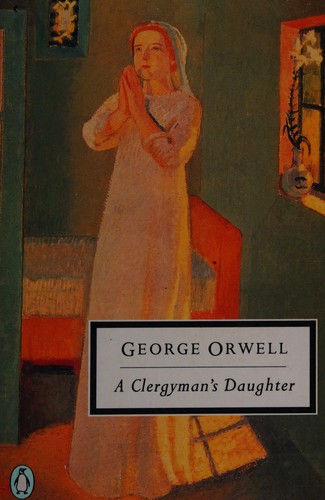Julia_98 reviewed A clergyman's daughter by George Orwell
Disillusion and Awakening – My Journey Through George Orwell’s A Clergyman’s Daughter
4 stars
Reading A Clergyman’s Daughter was like walking through a fog that gradually thickens until one begins to question not only the world but one’s own place within it. George Orwell’s novel, often overlooked beside his major works, struck me as one of his most human and quietly devastating explorations of faith, poverty, and identity.
The story follows Dorothy Hare, the dutiful daughter of a small-town clergyman. At first, I saw her as the embodiment of repression and obedience — her life reduced to routine, service, and silent endurance. But when a sudden breakdown shatters her memory and she finds herself adrift in London, I felt the narrative shift from the domestic to the existential. Orwell strips Dorothy of everything — class, religion, respectability — and forces her, and us, to confront what remains when all illusions are gone.
What moved me most was not her suffering, but her …
Reading A Clergyman’s Daughter was like walking through a fog that gradually thickens until one begins to question not only the world but one’s own place within it. George Orwell’s novel, often overlooked beside his major works, struck me as one of his most human and quietly devastating explorations of faith, poverty, and identity.
The story follows Dorothy Hare, the dutiful daughter of a small-town clergyman. At first, I saw her as the embodiment of repression and obedience — her life reduced to routine, service, and silent endurance. But when a sudden breakdown shatters her memory and she finds herself adrift in London, I felt the narrative shift from the domestic to the existential. Orwell strips Dorothy of everything — class, religion, respectability — and forces her, and us, to confront what remains when all illusions are gone.
What moved me most was not her suffering, but her quiet perseverance. In the scenes of homelessness and humiliation, Orwell’s prose becomes stark and compassionate. I could feel his deep empathy for the marginalized, but also his realism — there is no redemption, only endurance.
Dorothy’s eventual return to her old life felt bittersweet. She regains her place, yet something within her has changed irrevocably. Reading that ending, I felt Orwell’s unflinching message: awareness may not bring happiness, but it brings truth, and that is its own kind of grace.
A Clergyman’s Daughter left me unsettled but grateful — a reminder that awakening often begins in collapse, and that even in defeat, the mind can remain defiantly free.

